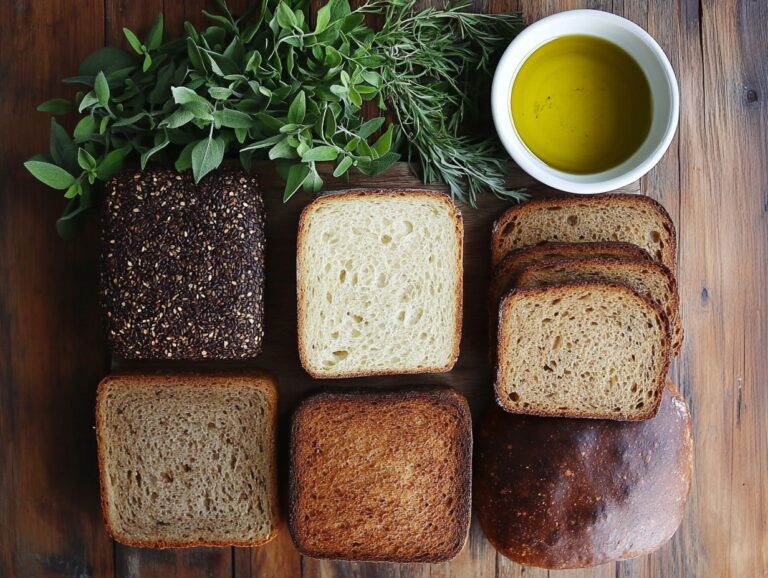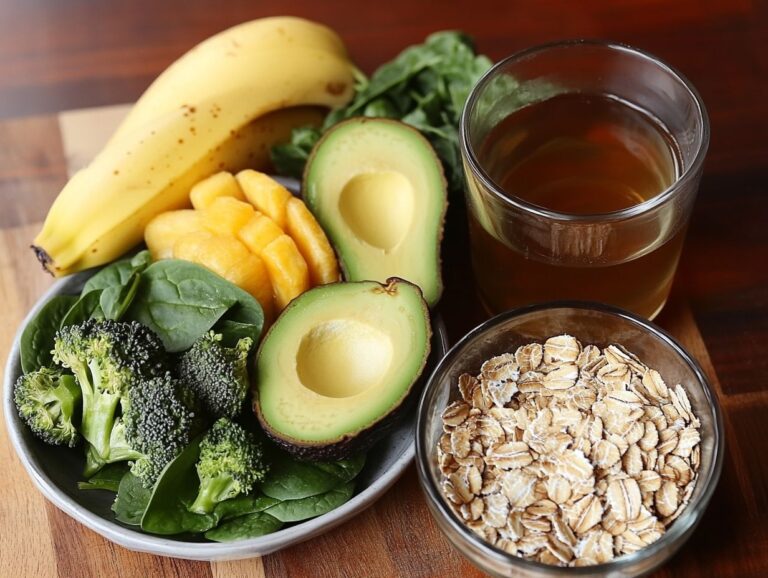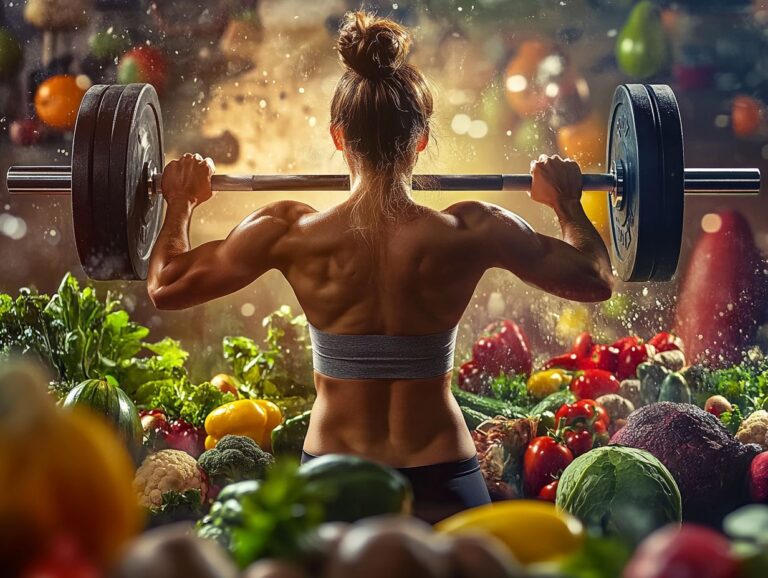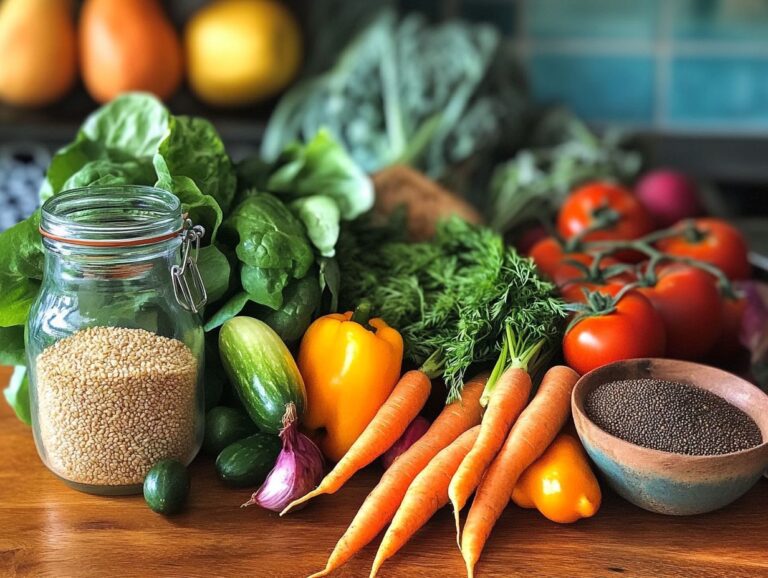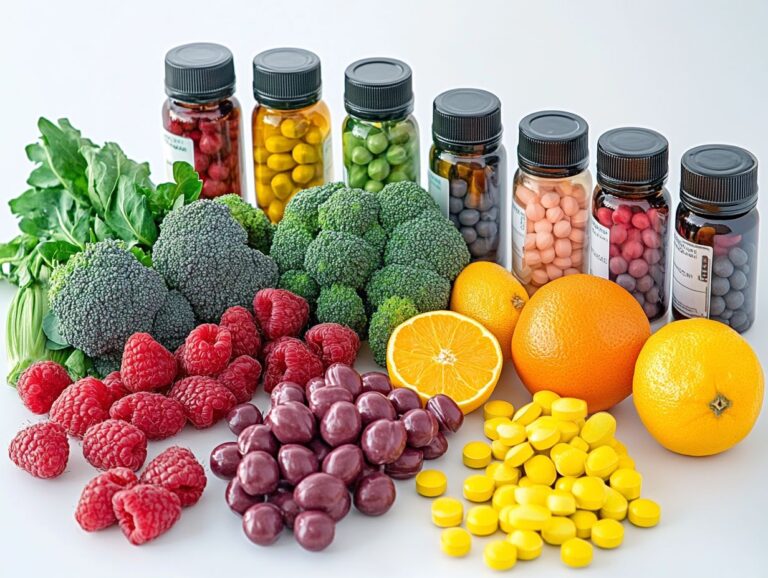In this guide, you will discover the reasons why you may feel fatigued on a vegan diet, as well as factors beyond nutrient deficiencies that could be affecting your energy levels. You will also find practical tips for boosting your energy while following a plant-based diet. Feeling drained on a vegan diet can be quite discouraging, especially when you are trying to adopt a healthier lifestyle overall. While a plant-based diet offers numerous benefits, failing to ensure that your body receives the right nutrients can lead to decreased energy levels. Key nutrients are essential for vitality, and understanding how to incorporate them into your meals is just as important as addressing other factors that may impact your energy. Here are some practical tips to help you increase your energy levels and fully embrace the benefits of your vegan journey.
Why Do Some People Feel Low Energy on a Vegan Diet?
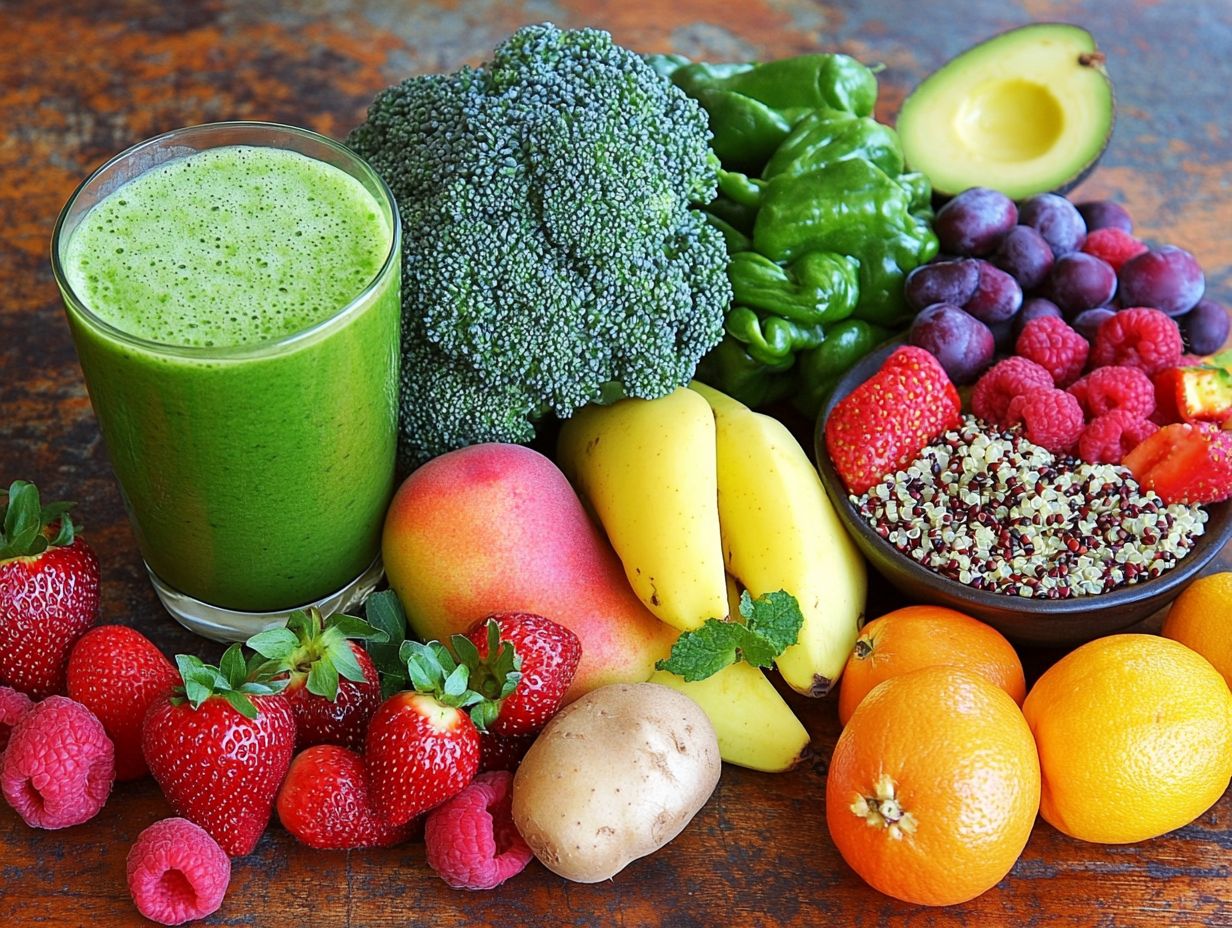
Individuals transitioning to a vegan diet often report experiencing low energy levels. This fatigue is frequently caused by a combination of insufficient nutrient intake, poor dietary choices, and potential genetic factors that affect nutrient absorption.
Energy deficits may be linked to deficiencies in key micronutrients that are essential for overall health and vitality. Important factors influencing the body’s ability to adapt to a plant-based diet include iron absorption, vitamin B12 levels, and inflammation. Additionally, genetic makeup and gut issues may further complicate nutrient absorption.
What Nutrients Are Essential for Energy?
Maintaining a balanced vegan diet requires careful consideration of specific nutrients that are essential for sustaining energy levels, especially for those who avoid animal products. These nutrients play key roles in energy metabolism, recovery, and overall well-being. Important nutrients for energy include the following:
- Vitamin B12 and Iron: These nutrients are crucial for maintaining energy levels and are often less bioavailable in plant sources. Additionally, folate, glycine, and choline are important for methylation and overall health.
- Omega-3 Fatty Acids: These serve as essential building blocks of cell membranes, which are important for mental clarity and healthy vision.
- Protein: An adequate intake of protein is vital for meeting the body’s needs for the replacement of worn-out tissues, repair, and growth.
- Vitamin D: This vitamin is important for calcium absorption and also plays a role in immune function.
1. Iron
Iron is a vital mineral for vegans, essential for energy production as it facilitates the transport of oxygen in the blood and supports overall metabolism. This crucial mineral helps prevent fatigue, contributing to a general sense of energy throughout the day.
However, non-heme iron found in plant-based foods does not absorb as easily as heme iron from animal sources, necessitating specific dietary combinations for optimal absorption. Vegans can find rich sources of iron in foods such as:
- Lentils
- Quinoa
- Fortified cereals
- Pumpkin seeds
- Dark chocolate
Combining these foods with those high in vitamin C, such as citrus fruits or bell peppers, can significantly enhance iron absorption. It is also important to recognize the health complications that can arise from iron deficiency, which may include anemia, weakened immune function, digestive issues, and decreased cognitive performance.
Adopting a mindful approach to iron intake can greatly improve overall well-being.
2. Vitamin B12
Vitamin B12 is an essential nutrient for vegans, as it plays a crucial role in energy metabolism, neurological function, and red blood cell production. Since Vitamin B12 is primarily found in animal products, vegans are at a higher risk of deficiency, which can lead to fatigue and anemia.
Consequently, incorporating fortified foods or Vitamin B12 supplements is vital for maintaining optimal energy levels and overall health. A deficiency in B12 can significantly impair the body’s ability to metabolize food into energy, potentially resulting in chronic fatigue and decreased cognitive function.
Good sources of B12 for a vegan diet include:
- Chronometer supplements
- Fortified cereals
- Plant-based milk
- Nutritional yeast
- Certain meat alternatives
Regular blood tests are recommended to monitor B12 levels, as prolonged deficiencies can lead to more severe health issues, including neurological problems and cardiovascular diseases. Along with the increasing risks of mortality from these conditions, long-term Vitamin B12 deficiency can result in irreversible damage to the nervous system, highlighting the importance of proper dietary planning and supplementation.
3. Omega-3 Fatty Acids
Omega-3 fatty acids, particularly DHA, play a crucial role in supporting brain function, reducing inflammation, and maintaining healthy vision. For those with specific dietary preferences, algae-derived DHA supplements can be an effective alternative to fish-based sources.
While these essential fats are found in high concentrations in fish and fish oils, vegans can obtain dietary omega-3s from certain plant-based sources such as flaxseeds, chia seeds, and walnuts. However, due to the presence of anti-nutrients like phytic acid, lectins, and oxalates in some plant foods, the bioavailability of these nutrients may be affected.
However, DHA is present in minimal amounts in these plant sources, and the conversion of alpha-linolenic acid (ALA)—the omega-3 found in plants—to DHA is limited. Therefore, it is important for those following vegan diets to make strategic dietary choices or consider supplements to ensure adequate levels of DHA.
Incorporating omega-3s into daily meals can further enhance energy levels and cognitive function. They not only help prevent inflammation, which can be distracting and diminish overall energy, but also contribute to improved mood and mental clarity.
For those adhering to strict vegan diets, algae-derived supplements offer a viable alternative, providing a direct source of DHA without relying on conversion. This ensures individuals receive the full benefits associated with omega-3s, supporting overall health and maintaining energy throughout the day.
4. Protein
Adequate protein intake is essential for vegans to meet their caloric needs, aid in muscle recovery, and support overall health. Plant-based proteins derived from legumes, nuts, seeds, and whole grains can fulfill daily protein requirements, but it is important to consume them in various forms to ensure a complete amino acid profile. Protein recovery shakes can help individuals reach their targeted protein goals, particularly when consumed after exercise. For those looking to boost collagen production, pairing protein intake with vitamin C-rich foods can be beneficial.
In a balanced vegan diet, understanding the difference between complete and incomplete proteins is crucial. Complete proteins contain all nine essential amino acids and can be found in certain plant-based sources like quinoa and soy products. Incomplete proteins, which are more common, are typically found in grains and legumes. These can be combined throughout the day—such as pairing rice with beans—to achieve the full amino acid spectrum.
Active individuals may use recovery shakes and plant-based protein supplements not only to boost their protein intake but also to aid in replenishing and repairing muscle tissue. Vegan meal plans, along with nutritional guidelines and resources, can assist individuals in ensuring they obtain sufficient protein while meeting other dietary requirements. These strategies simplify the process of achieving nutritional goals.
5. Vitamin D
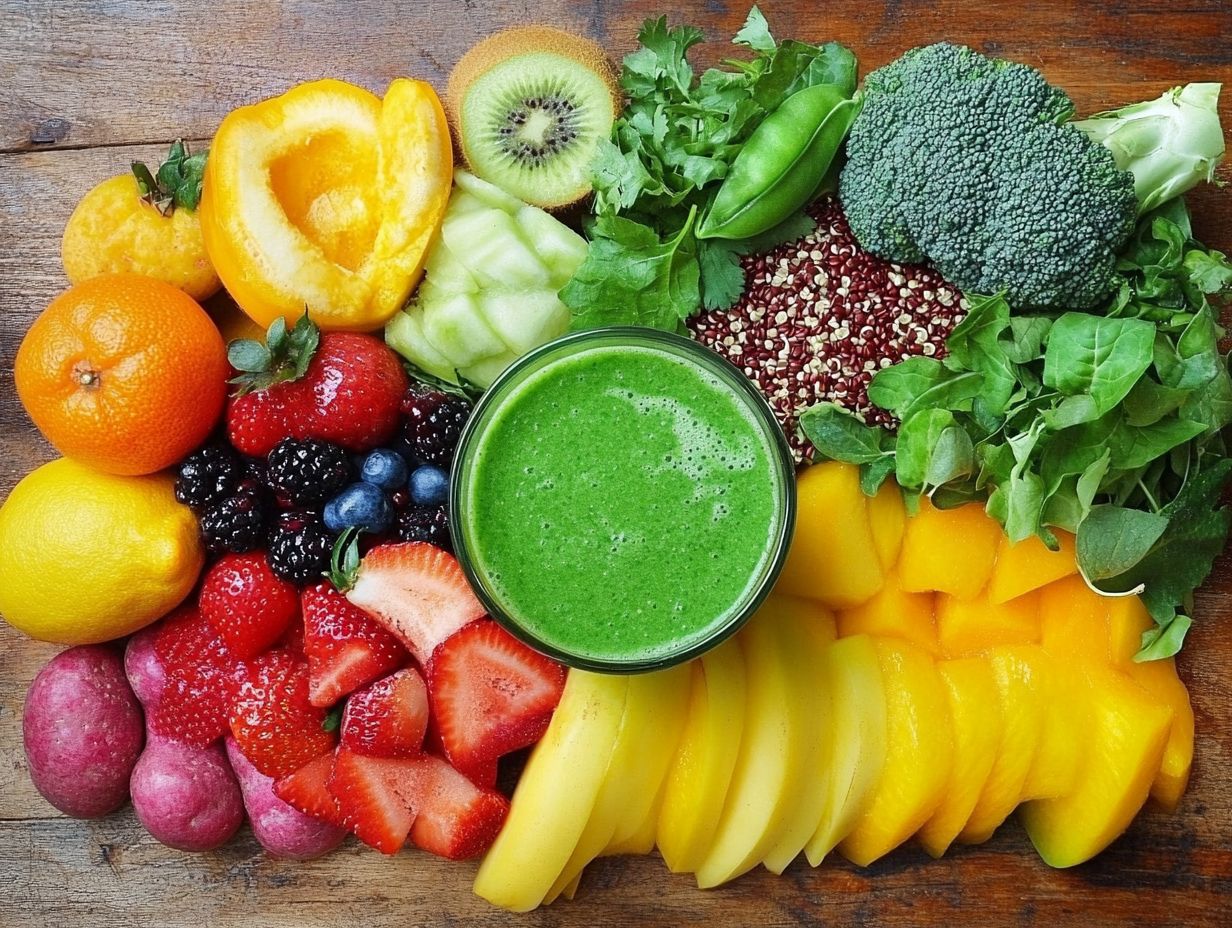
Vitamin D is crucial for immune function, calcium absorption, and overall well-being; however, it can be challenging for vegans to obtain sufficient amounts. Those with autoimmune disorders may also need to pay extra attention to their vitamin D intake to manage inflammation and other symptoms.
While sunlight exposure serves as a natural source of vitamin D, many vegans may need to rely on fortified foods or supplements, particularly in regions with limited sunlight. Low levels of vitamin D can lead to fatigue and other health complications that negatively impact energy levels.
The importance of vitamin D extends beyond immunity; it also plays a vital role in maintaining mental clarity and physical stamina, both of which are essential for daily activities.
For those following a vegan lifestyle, finding dietary sources such as fortified plant-based milks, cereals, or nutritional yeast is crucial, yet these options are often insufficient.
Sun exposure, typically regarded as the best natural source, can be limited during the winter months or for individuals living in higher latitudes, making supplementation increasingly important.
Proper vitamin D supplementation can not only enhance energy levels but also improve mood and overall vitality, making it an essential component of health management for those unable to get enough through diet and sunlight.
How to Incorporate These Nutrients into a Vegan Diet?
Incorporating essential nutrients into a vegan diet is crucial for optimizing energy levels and overall health. To achieve this, it is important to select food sources that are high in iron, vitamin B12, omega-3 fatty acids, vitamin A, and protein.
Additionally, ensuring adequate vitamin D intake through sun exposure or supplements is essential. By following these steps, vegans can meet their dietary requirements and reduce the risk of nutrient deficiencies.
This approach ultimately supports energy levels and enhances overall well-being and performance. Utilizing dietary strategies such as incorporating nutrient-dense and energy-rich foods into daily meals can make a significant difference.
1. Iron-rich Foods
Iron-rich foods are a vital component of a vegan diet, enhancing nutrient absorption and overall energy levels. Combining these with vitamin C can improve absorption rates and optimize health benefits.
Iron-rich foods are essential for vegans to maintain optimal energy levels and prevent deficiencies. Excellent sources of iron include legumes, dark leafy greens, seeds, and fortified cereals. Including whole grains like quinoa and Brussels sprouts in your diet can also aid in meeting iron needs.
Incorporating chickpeas, lentils, quinoa, and kale into daily meals can significantly help meet iron requirements. Snack options such as pumpkin seeds and dried apricots are convenient, nutrient-dense choices that are high in iron. For those tracking their nutrient intake, using tools like Chronometer can provide detailed insights and support dietary planning.
To ensure proper absorption of iron, it is important to pair it with the right foods. For instance, a salad featuring kale and sliced strawberries can provide both iron and vitamin C, facilitating better absorption.
Insufficient iron intake can lead to fatigue, a weakened immune system, and various other health issues. Therefore, meals like stir-fried tofu with broccoli or a smoothie made with spinach and orange can greatly enhance overall iron levels.
2. Vitamin B12 Supplements
Vitamin B12 supplementation is crucial for many vegans, as this vitamin is primarily found in animal foods, leading to a high risk of deficiency.
While adequate B12 can be obtained from fortified foods such as plant-based milk, nutritional yeast, and breakfast cereals, individuals following a vegan diet should regularly monitor their B12 levels to ensure overall health.
Vitamin B12 supplements come in various forms, including sublingual tablets, capsules, and injectable options. It is generally recommended that individuals consume a minimum of 250-500 mcg of B12 per day, although higher dosages may be necessary for those diagnosed with a deficiency.
Regular blood tests, ideally conducted once a year, can help monitor B12 levels and prevent potential complications, which may include fatigue, neurological issues, and anemia—conditions associated with B12 deficiency.
For vegans, taking a B12 supplement is especially important, as the absence of animal-derived foods increases the risk of nutrient deficiencies.
3. Plant-based Sources of Omega-3s
Here are some of the best plant-based sources of omega-3 fatty acids for vegans:
- flaxseeds
- chia seeds
- walnuts
- hemp seeds
- Brussels sprouts
- seaweed
- algal oil supplements (for DHA)
These plant-based sources are essential for vegans to incorporate vital fatty acids into their diets. While plant-based sources primarily provide ALA, algae-based supplements are necessary for those seeking DHA, as the conversion of ALA to DHA in the body is inefficient.
Omega-3-rich foods that are less commonly consumed but still contribute significantly to omega-3 intake include hemp seeds, Brussels sprouts, and seaweed. Including these foods in meals can enhance energy levels and cognitive function, making them a fundamental part of vegan nutrition.
Although the body struggles to convert ALA into DHA—an important compound for reducing inflammation and improving cognitive performance—adequate omega-3 intake can be achieved through careful dietary choices and supplementation.
4. High Protein Vegan Foods
High-protein vegan foods are essential for meeting protein requirements, which are crucial for recovery and energy in individuals engaged in physical activity. Legumes, nuts, seeds, and whole grains provide the necessary amino acids, and incorporating a protein recovery shake can further support muscle repair and energy replenishment after exercise.
It is important to consume a variety of these sources throughout the day as part of a balanced diet. For example, a typical day’s meals might look like this:
- Breakfast: A nutritious bowl of oatmeal topped with chia seeds and almond butter.
- Lunch: A quinoa salad featuring black beans, peppers, and lime juice.
- Snacks: Roasted chickpeas or hummus with fresh vegetables.
For active individuals, meal planning can be centered around workouts. A protein recovery shake can serve as a supplement to a post-workout meal, aiding in muscle replenishment and growth after intense exercise, thus facilitating the achievement of fitness goals.
5. Sun Exposure or Vitamin D Supplements
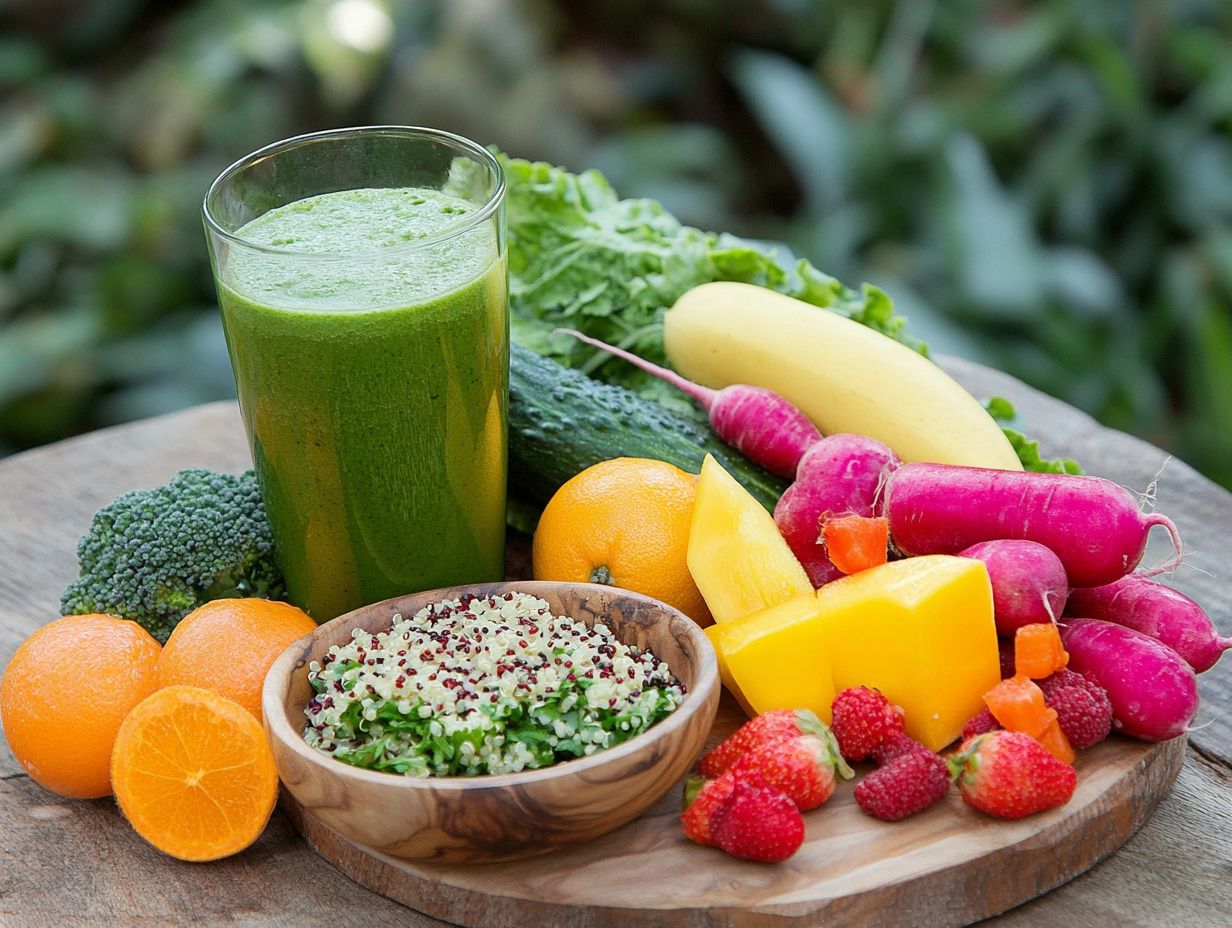
Adequate sun exposure is essential for the synthesis of vitamin D; however, for many vegans, especially those living in areas with limited sunlight, vitamin D supplements are often necessary to maintain optimal health and energy levels.
It is crucial to ensure sufficient vitamin D intake, as it plays a vital role in calcium absorption and significantly impacts overall well-being and energy. The functions of vitamin D include maintaining healthy bones, enhancing the immune system, stabilizing mood, and regulating sleep patterns.
For individuals who find it challenging to get enough sunlight due to lifestyle constraints or geographic location, dietary sources of vitamin D become increasingly important. Foods such as fortified plant-based milks, UV-exposed mushrooms, and certain fortified cereals can provide the necessary nutrients.
When these food sources are inadequate, supplements can help bridge the gap, preventing deficiencies that may lead to fatigue, muscle weakness, and increased susceptibility to illnesses.
What Other Factors Can Affect Energy Levels on a Vegan Diet?
Along with nutrient intake, energy levels on a vegan diet can be influenced by several factors, including overall dietary choices, sleep quality, and gut health.
Furthermore, health complications arising from stress or underlying conditions can also contribute to fatigue and low energy.
1. Not Eating Enough Calories
Not consuming enough calories can lead to lethargy, particularly among vegans who often eat large volumes of low-calorie plant foods. To maintain energy levels and reduce feelings of tiredness and sluggishness, it is important to eat a sufficient amount of energy-dense and nutrient-dense foods throughout the day.
To counteract the tendency of many staple vegan foods, which are high in fiber and low in calories, individuals should opt for more calorie-dense options such as:
- Nuts
- Seeds
- Avocados
- Whole grains
A meal plan that includes items like nut butter on whole-grain toast, salads with quinoa and chickpeas, and smoothies made with bananas and almond milk can significantly increase overall caloric intake.
Greater effort is needed for meal planning—whether by cooking in larger quantities or incorporating energy-dense foods into snacks throughout the day—to meet caloric requirements without feeling overly full. Balancing these preferences will not only help ensure a calorically and nutritionally adequate diet but also maintain energy levels for daily activities.
2. Lack of Sleep
The negative impacts of insufficient sleep on energy levels, recovery, and overall well-being are significant, making sleep a crucial aspect of energy management, especially on a vegan diet.
Quality sleep is essential for physical recovery, mental functioning, and emotional balance; however, a lack of sleep often exacerbates feelings of fatigue and low energy. Inadequate sleep can hinder the body’s ability to restore energy, resulting in decreased performance throughout the day.
This creates a feedback loop characterized by reduced productivity and increased irritability, making it more challenging to complete daily tasks.
To address these issues, incorporating good sleep hygiene practices can be beneficial. Maintaining a consistent sleep schedule, creating a calming and comfortable sleep environment, and engaging in stress-reduction techniques such as mindfulness or yoga can all enhance sleep quality.
Additionally, nutritional choices can influence sleep quality, as certain foods promote restful sleep while others may disrupt it. Ultimately, sleep is as critical to energy management as nutrition and exercise.
3. Stress
Stress is a significant factor that can negatively impact energy levels and overall well-being, particularly in individuals who follow a vegan diet. Prolonged stress is associated with increased inflammation and hormonal imbalances, which can lead to fatigue and hinder recovery.
When the body experiences chronic stress, it releases cortisol and adrenaline—hormones that prepare us for a ‘fight or flight’ response. While these hormones may temporarily boost energy, their sustained presence can deplete essential nutrients and disrupt sleep patterns, exacerbating feelings of exhaustion.
To break this cycle, it is crucial to reduce stress through mindfulness practices such as meditation and deep-breathing exercises. Engaging in regular physical activity, even light exercises like yoga or walking, can enhance mood and energy levels.
Additionally, making smart dietary choices—such as incorporating whole foods rich in antioxidants and Omega-3 fatty acids—can promote emotional resilience and help maintain energy levels.
4. Underlying Health Conditions
Underlying health conditions can significantly impact energy levels, particularly for individuals following a vegan diet who may already be experiencing nutrient deficiencies. Conditions such as hypothyroidism, anemia, or chronic fatigue syndrome can further deplete energy, making it crucial for those on a strictly plant-based diet to be mindful of their health.
For example, iron-deficiency anemia, which may be more common among those who limit their intake of red meat and other iron-rich foods, can lead to significant fatigue. Similarly, gastrointestinal disorders like irritable bowel syndrome can hinder the absorption of essential nutrients, exacerbating the issue.
In such cases, it is vital to consult healthcare professionals to accurately identify underlying problems, manage symptoms, and implement necessary dietary changes to ensure optimal energy levels and overall health maintenance.
How to Boost Energy Levels on a Vegan Diet?
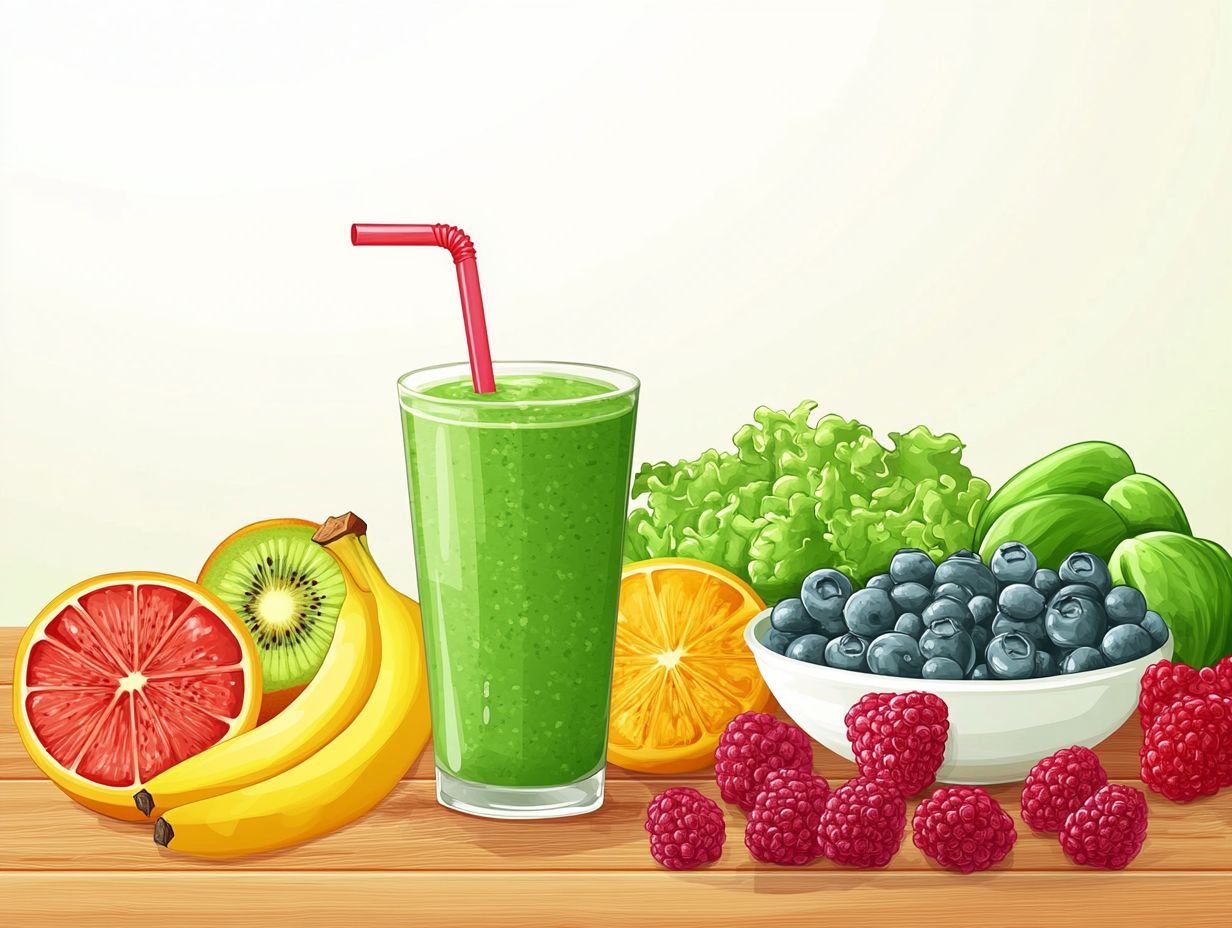
The most effective way to boost energy levels on a vegan diet is through a comprehensive approach that includes hydration, balanced nutrition, stress management, and quality sleep.
By consuming nutrient-rich foods, staying properly hydrated, managing stress effectively, and ensuring adequate sleep, individuals can enhance their energy levels and overall health while following a vegan or vegetarian diet.
1. Stay Hydrated
Hydration is essential for maintaining optimal energy levels, as even mild dehydration can lead to fatigue and decreased brain function. Proper hydration supports nutrient absorption, digestion, and overall health, making it particularly important for those on a vegan or vegetarian diet who may consume high-fiber foods that require adequate fluid intake for effective digestion. Incorporating antioxidant-rich beverages can also support cellular health and energy levels.
Water helps break down nutrients from these fiber-rich foods, allowing the body to absorb them efficiently. It also plays a crucial role in transporting these nutrients throughout the body.
To ensure adequate hydration, individuals should:
- Drink water consistently throughout the day
- Monitor their water intake
- Incorporate water-rich foods such as fruits and vegetables into their diets
Those following high-fiber diets should gradually increase their water intake, as fiber absorbs water and relies on it to function effectively. Signs of dehydration include dry mouth, fatigue, dizziness, and decreased urine output, all of which can significantly reduce energy levels and overall productivity in daily activities.
2. Eat a Balanced Diet
Maintaining energy levels on a vegan diet requires eating a balanced diet that ensures all essential nutrients are provided in adequate amounts. A balanced diet involves not only consuming specific food groups but also including a variety of foods within each group. Pay special attention to micronutrients like Vitamin B12, iron, and omega-3 fatty acids, which might require supplementation.
For instance, a meal of quinoa and black beans, accompanied by a mix of chopped vegetables and avocado, provides both protein and healthy fats, addressing protein needs. Additionally, snacks such as hummus with carrot sticks or a handful of mixed nuts can help keep you energized throughout the day by providing essential B vitamins and omega-3 fatty acids.
3. Get Enough Sleep
Sleep plays a crucial role in enhancing energy levels and overall health, as it facilitates essential recovery and cognitive support processes. For individuals following a vegan or vegetarian diet, good sleep hygiene can help alleviate fatigue and improve daily functioning, which is beneficial for maintaining their lifestyle. Ensuring adequate intake of micronutrients like magnesium and glycine can also improve sleep quality and recovery.
When the body is at rest, it not only enhances nutrient absorption but also optimizes energy metabolism, ensuring that the vitamins and minerals from plant foods are effectively utilized. Consuming a recovery shake with protein and essential amino acids can further support muscle recovery and overall energy levels.
Establishing a regular sleep routine is important, as it helps regulate the body’s internal clock, making it easier to fall asleep and wake up at consistent times each day.
Techniques that can improve sleep hygiene include:
- Limiting screen time before bed
- Establishing a calming pre-sleep routine
- Creating a bedroom environment conducive to sleep
Additionally, a balanced diet and mindfulness practices may further promote deeper and more restful sleep.
4. Manage Stress
Effective stress management is crucial for maintaining energy levels, as chronic stress can lead to fatigue and various health complications, particularly for those following a vegan or vegetarian diet. Stress can impact the bioavailability and absorption rates of essential nutrients, emphasizing the need for a nutrient-dense diet.
Techniques for managing stress can enhance energy by improving overall health and well-being. These methods address underlying tension and promote a sense of calm, which in turn enhances focus and clarity.
Mindfulness practices, such as meditation and deep-breathing exercises, help individuals remain present, reducing anxiety and fostering a feeling of greater control. Additionally, physical activity increases the release of endorphins, which boost mood and vitality.
Relaxation techniques, including yoga and guided imagery, can significantly lower cortisol levels, which is vital for proper nutrient absorption.
5. Consult a Doctor if Needed
If persistent fatigue and low energy levels continue despite dietary adjustments, it is important to consult a doctor to determine whether underlying health complications or nutrient deficiencies may be present. Tests for nutrient deficiencies, such as Vitamin B12, iron, folate, and omega-3 fatty acids like DHA, are particularly important for those following restrictive diets.
A healthcare provider can offer personalized advice, medications, and develop tests and treatment plans to ensure optimal health and energy while following a vegan or vegetarian diet. This step is especially crucial, as common nutrient deficiencies—such as Vitamin B12, iron, and omega-3 fatty acids—can lead to serious health complications if left unaddressed. Understanding one’s genetic makeup, such as the MTHFR gene, can also influence nutrient metabolism and dietary choices.
For instance, complications like anemia or thyroid issues, which are more prevalent in individuals with restrictive diets, can significantly affect energy levels. Regular check-ups, including testing for anti-nutrients like phytic acid, lectins, and oxalates, and professional guidance play a vital role in diagnosing these deficiencies early and in creating a balanced meal plan that supports energy levels and overall health. Considering supplementation and dietary strategies can further enhance nutrient absorption and overall well-being.
